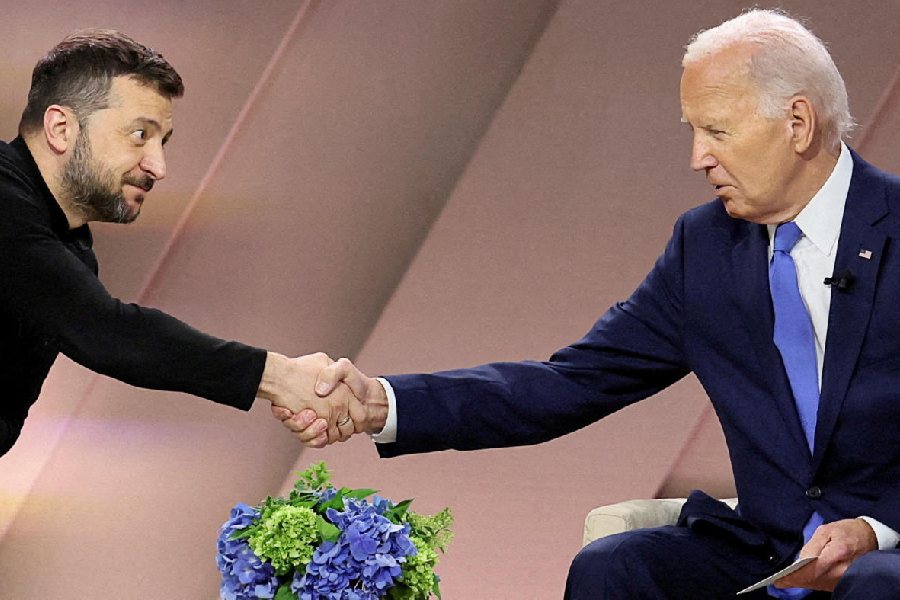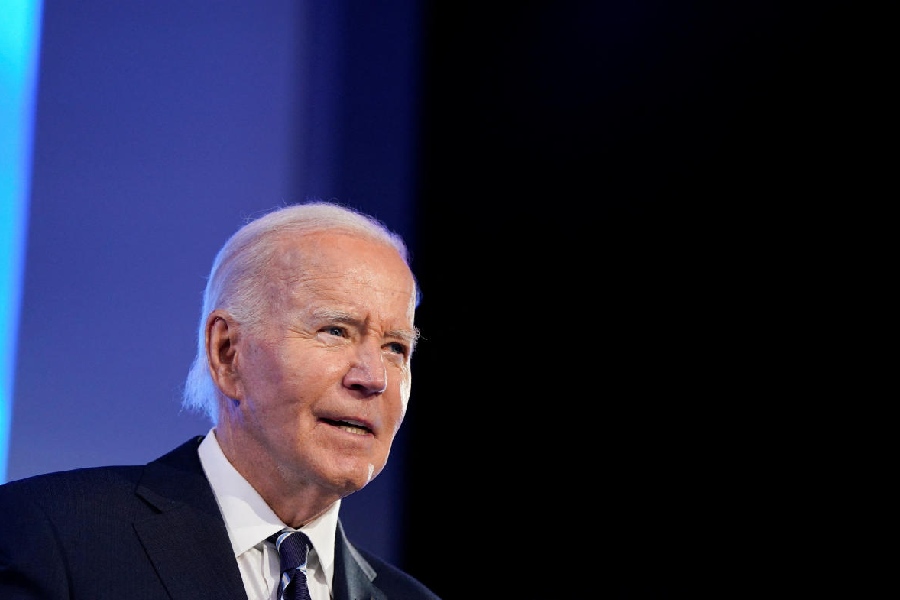U.S. President Joe Biden announced more than $8 billion in military assistance for Ukraine on Thursday to help Kyiv "win this war" against Russian invaders, using a visit by President Volodymyr Zelenskiy to make a major commitment.
The aid includes the first shipment of a precision-guided glide bomb called the Joint Standoff Weapon, with a range of up to 81 miles (130 km). The medium-range missile gives Ukraine a major upgrade to the weapons it is using to strike Russian forces, allowing the Ukrainians to do it at safer distances. The bomb, capable of striking targets with high accuracy, is to be dropped from fighter jets.
Biden will not announce that Washington would let Ukraine use U.S. missiles to hit targets deeper in Russia, a U.S. official said.
Supporting Ukraine, which Russia invaded in February 2022, has been a U.S. top priority, Biden said in a statement.
"That is why, today, I am announcing a surge in security assistance for Ukraine and a series of additional actions to help Ukraine win this war," said Biden, who leaves office in January.
The bulk of the new aid, $5.5 billion, is to be allocated before Monday's end of the U.S. fiscal year, when the funding authority is set to expire. Another $2.4 billion is under the Ukraine Security Assistance Initiative, which allows the administration to buy weapons for Ukraine from companies rather than pull them from U.S. stocks.
This will provide Ukraine with additional air defense, unmanned aerial systems and air-to-ground munitions, as well as strengthen Ukraine's defense industrial base and support its maintenance and sustainment requirements, Biden said.
Under his plan, the president said, the Defense Department will refurbish and provide Ukraine with an additional Patriot air defense battery and more Patriot missiles.
Biden ordered the Pentagon to expand training for Ukrainian F-16 pilots, including by supporting the training of an additional 18 pilots next year.
Zelenskiy thanked Biden and the U.S. Congress for the new military aid package, saying Ukraine would use it "in the most efficient and transparent manner".
"I am grateful to the United States for providing the items that are most critical to protecting our people," Zelenskiy said on X, mentioning the Patriot battery, drones and long-range missiles.
REPUBLICAN CRITICISM OF ZELENSKIY
To combat Russian sanctions evasion and money laundering, the U.S. will act to disrupt what Biden called "a global cryptocurrency network, in coordination with international partners."
Biden said he will convene a leader-level meeting of the Ukraine Defense Contact Group in Germany next month to coordinate efforts of more than 50 countries supporting Ukraine.
Before meeting Biden at midday (1600 GMT), Zelenskiy attended meetings with Democratic and Republican lawmakers - including leaders of the national security committees that oversee foreign assistance - at the Capitol.
Ukraine's defense has largely received bipartisan support in the U.S., but it was not clear how many Republicans would make time to sit down with Zelenskiy amid rising criticism of his government from party leaders, including Donald Trump, the Republican presidential candidate.
Trump has been criticizing the Ukrainian president as he campaigns for the Nov. 5 election and, at least for now, turned down a request from Zelenskiy for a meeting.
The former president was sharply critical of Zelenskiy on Wednesday, telling a campaign rally in North Carolina, "We continue to give billions of dollars to a man who refused to make a deal, Zelenskiy."
Trump also blamed Biden and Vice President Kamala Harris, his Democratic presidential opponent, for allowing Russia's invasion.
Many congressional Republicans have been furious about Zelenskiy's visit on Sunday to a munitions factory in Scranton, Pennsylvania, where Biden grew up. The Republican-led House of Representatives Oversight Committee opened an investigation into Zelenskiy's trip.
House Speaker Mike Johnson, a Republican who is not expected to meet Zelenskiy on Thursday, demanded that he fire his ambassador to Washington for planning the Scranton trip, although he told reporters this demand was not a threat to oppose military aid. (Reporting by Steve Holland and Patricia Zengerle; Additional reporting by Juliia Dysa in Gdansk; Editing by William Mallard, Ros Russell and Nick Zieminski)











